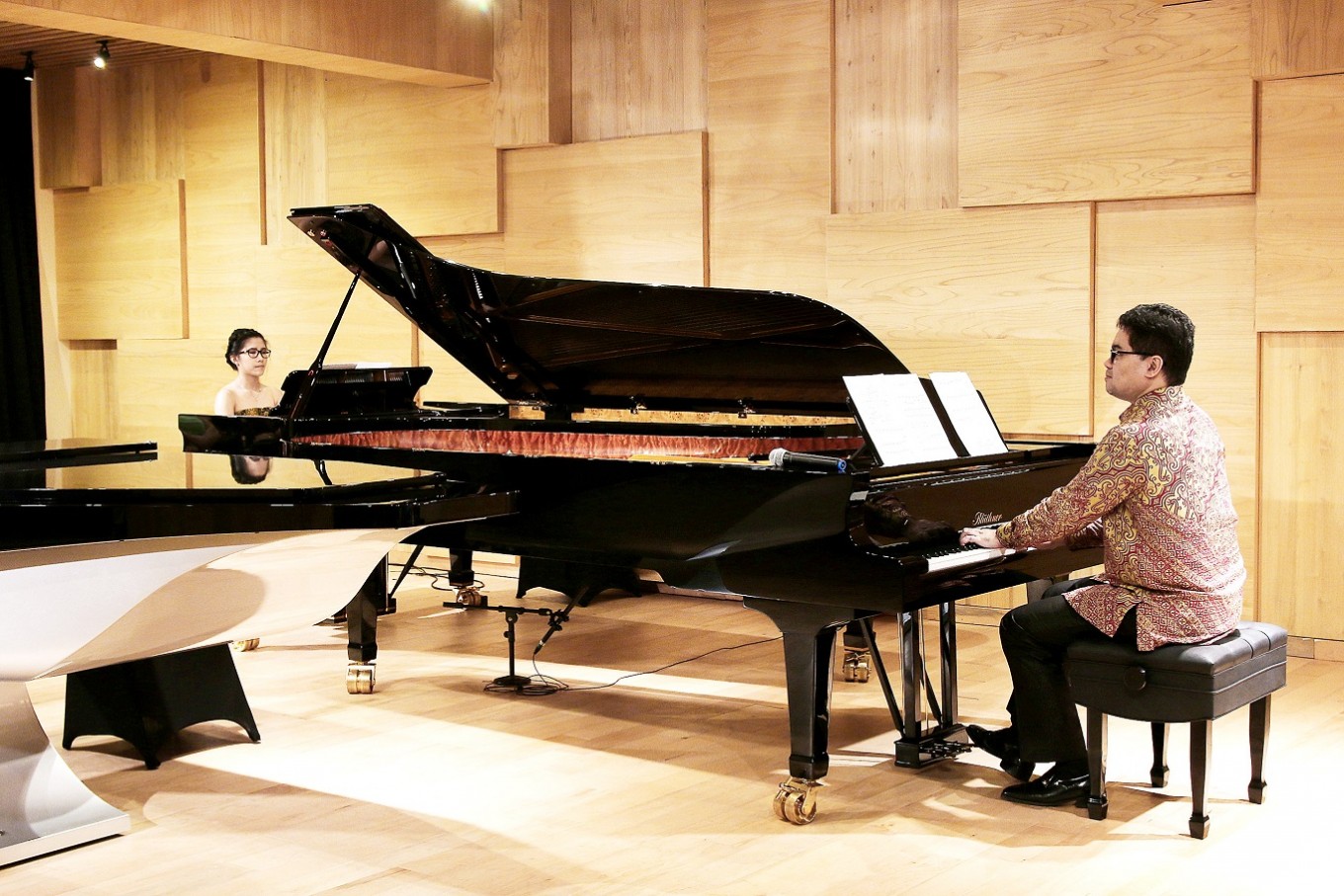Popular Reads
Top Results
Can't find what you're looking for?
View all search resultsPopular Reads
Top Results
Can't find what you're looking for?
View all search results'Pavarotti Forever,' a recital to remember
Late Italian tenor Luciano Pavarotti might be not among us anymore, but his voice and his legacy in classical music is everlasting.
Change text size
Gift Premium Articles
to Anyone
L
ate Italian tenor Luciano Pavarotti might be not among us anymore, but his voice and his legacy in classical music is everlasting.
To mark the commemoration of the 10th anniversary of Pavarotti’s death, the Italian Embassy in Indonesia, the Istituto Italiano di Cultura (IIC), the Pavarotti Foundation and the Ciputra Artpreneur cultural center is set to organize a tribute recital called Pavarotti Forever on Sunday, Nov. 26 starting at 7 p.m. in the Ciputra Artpreneur theater.
The upcoming tribute recital seeks to honor the legendary singer while at the same time introducing classical music to a wider public. The Jakarta concert is part of the Pavarotti Foundation’s series of concerts across the globe. In addition to the concert, Ciputra Artpreneur will also organize a memorabilia exhibition featuring the late opera singer’s belongings — like his hat, clothes and ties — on Nov. 25 and 26.
Pavarotti was born in Modena on Oct. 12, 1935 and passed away on Sept. 6, 2007. He sang opera — considered Italy’s highest musical art form.
“Pavarotti popularized opera among the public,” IIC director Michela Linda Magri said.
He popularized composer Giacomo Puccini’s aria “Nessun Dorma” when he sang it at the 1990 World Cup. The aria has currently been referenced in pop culture again, with 2015 film Mission: Impossible — Rogue Nation featuring a 10-minute scene with the song as a musical backdrop, involving a sharpshooter who could read musical scores.
Besides that, Pavarotti also brought Italian composers such as Donizetti and Giuseppe Verdi back in the limelight, bringing Italy’s cultural assets global recognition.
“He also brought opera to the masses by opening himself up to crossover music when he collaborated with [pop and rock] musicians and bands such as Mariah Carey, Lionel Ritchie, Eric Clapton, U2 and Queen’s [late frontman] Freddie Mercury. Thanks to his efforts, his records marked the first time that classical crossover albums made it to the Top Five on the charts,” Michela said.
On the occasion of the concert, Pavarotti’s wife, Nicoletta Mantovani, who runs the Pavarotti Foundation to train new opera talents across the globe, will also visit Jakarta.
The concert will feature some of the best singers from the foundation, comprising tenors Marco Miglietta, Jenish Ysmanov and Alin Stoica as well as soprano Elisa Balbo. The singers will be accompanied by renowned pianist and Pavarotti’s longtime friend Paolo Andreoli.
They are set to perform Pavarotti’s most popular arias, including “Nessun Dorma,” “Traviata-Brindisi,” “O Sole Mio,” and many more.
In addition to that, the tribute concert will also feature the world premiere of a composition from Indonesian composer and pianist Ananda Sukarlan called “I Wish Pavarotti Had Met Marzuki.”
Ananda said if the late Indonesian composer Ismail Marzuki had been introduced as a local cultural asset, it could have boosted the world stature of Indonesian music.
“Through this composition, I tried to convince people that had Pavarotti visited Indonesia, he could’ve sung a composition of one of our greatest composers, Ismail Marzuki. If you turn ‘Nessun Dorma’ around, the motifs connect with Marzuki’s composition called ‘Melati di Tapal Batas’ [Jasmine Flower on the Borderline]. So I’ve combined the motifs of both songs,” he said.
Marzuki composed “Melati di Tapal Batas” in 1946.
“It’s interesting that Puccini, who came from 19th century Italy, used the same notes utilized by an Indonesian composer. The Indonesian musical scale — the one used in gamelan — is pentatonic, while the Western musical tradition uses the diatonic scale. Nevertheless, we are using the same seven notes,” Ananda said, demonstrating on his piano that he used Indonesian pentatonic patterns to create a variation on Puccini’s piece.











